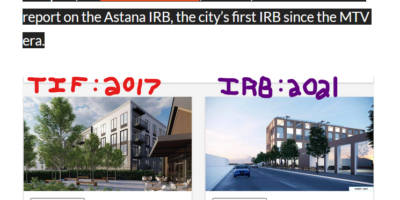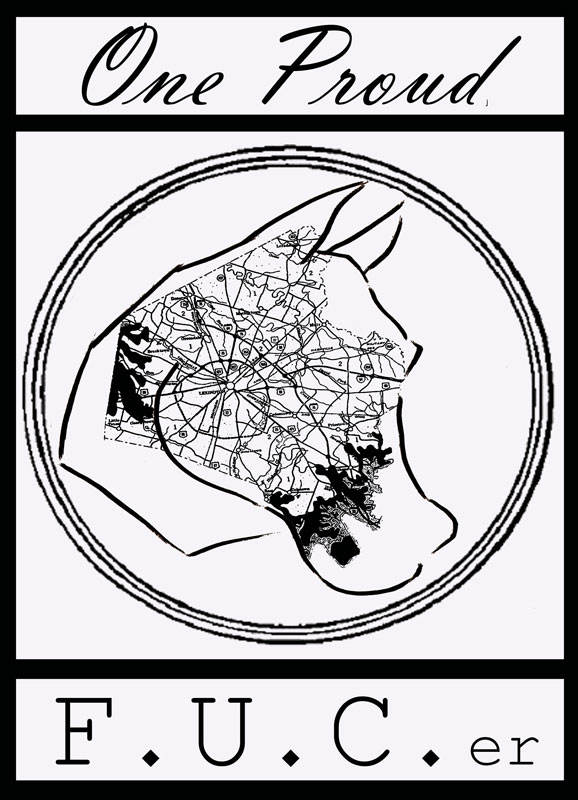A Creatives for Common Sense position paper
Writing in the February 22 Lexington Herald Leader, columnist Tom Eblen called attention to the clunky Lexington Fayette Urban County Government (LFUCG) moniker employed since the 1970s merger of the city and county. “[D]epending on how you say it,” Tom observes of the abbreviated term, it “sounds either like alphabet soup or an obscenity…How did the government of such a beautiful place end up with such a bureaucratic name?” (What about L-Fudge, Tom? This seems a plausible rendering of the LFUCG term, one that is relatively un-bureaucratic and wonderfully tasty. But we digress…)
In the article and in another follow-up piece, Tom suggests that LFUCG dump the the FUCG part (the Fudge, or perhaps the FUCK-G or the Fuckage, depending on pronunciation). In its place, Tom suggests a focus on the “L”: we should refer to our home simply as “Lexington,” or following former mayor Foster Pettit’s suggestion, the “Community of Lexington.”
As it so happens, the Creatives for Common Sense (CfCS) have been studying this very issue. Over the past two years, the group has been identifying the potential brand opportunities and pitfalls of the term “Lexington” while also seeking out new local-first brand identities. Based on our own studies, we agree with Lexington Forum president Winn Stephens, cited in Tom’s follow-up article, that “[n]obody with any marketing or public relations savvy would come up with a moniker like LFUCG.” We diverge from both Tom and Winn (and Foster and everyone else cited in Tom’s column), however, on the natural, preferable—even marketable—use of the term Lexington to describe ourselves. A better option, indeed the best one, would be for us to identify as Fayette Urban County. Here’s why:
As a term, Lexington runs against a number of brand headwinds. For one, Lexington does not exactly roll off the tongue. To self identify as a “Lexingtonian” requires even more work–a whopping (and wasteful) five syllables. On top of that, the “x,” the “ing,” and the “ian” unfortunately found in the name aurally associate our homes with a three-pack of unavoidable grating glottals. Can you say the word “Lexingtonian” without coming off as (a) having an uptight puckered asshole, and/or (b) a total blue-blood snob? We couldn’t either, which is why maybe it’s not so good to have an entire region of people shout it out proudly from their horse pastures.
In addition to the city’s rhythmic and syllabic problems, though, identifying as a Lexingtonian unnecessarily limits our political brand coverage. It’s the equivalent of producing a brand monoculture. The government has openly championed the marketing potentials of investing in a vibrant downtown city core and the rural countryside lying at most of its edges. This is fine so far as it goes, but as a political brand Lexington’s identity as the “next great American city” does not cover, or even pretend to represent, the suburban reality that defines most of our existence.
In fact, it is these threads of un-reality upholding the Lexington brand that ultimately doomed it in our studies. We’ll offer one example: Tom suggests that a Lexington identity based in uniquely connecting the city to the country should mark us, brand-wise, as a green city. Brand-wise, maybe…but the reality is that we have one of the largest carbon footprints per capita and are built on a suburban infrastructure dating back even to the 5-acre northside suburban lots appearing in the city’s original town plat. In other words, a brand focus may sell us as an urban city, but the reality is a pretty long history of suburbanization. Eventually, holes such as this in the brand facade damage more than just the image. It seeps into all of us.
In brand Lexington’s place, we suggest the more encompassing marketing identity “Fayette Urban County.” Phonetically, the term is the anti-Lexington: the three-word triple iambic “Fayette, Urban, County” really rolls off the tongue, while the abbreviated “quickie” designation, FUC, is both succinct and a noticeable brand in its own right. Geographically, identifying as Fayette Urban County brands the entire citizenry. It does so by creating a state-centric identity field (counties) that—with the exception of a generic “Bourbon County” appearing recently in several beer names—represents a virtually untapped brand and marketing frontier.
Most importantly, in terms of our actual living identities, the change allows us to be represented as the fluid FUCers we are: a little bit urban city, a little bit country county—and everything else in between.





Charles A. Bowsher
Shouldn’t it be “Fayette Urban County Kentucky”? or FUCK for short? Or am I just really slow on the uptake?
Danny Mayer
Don’t be vulgar, Charles.